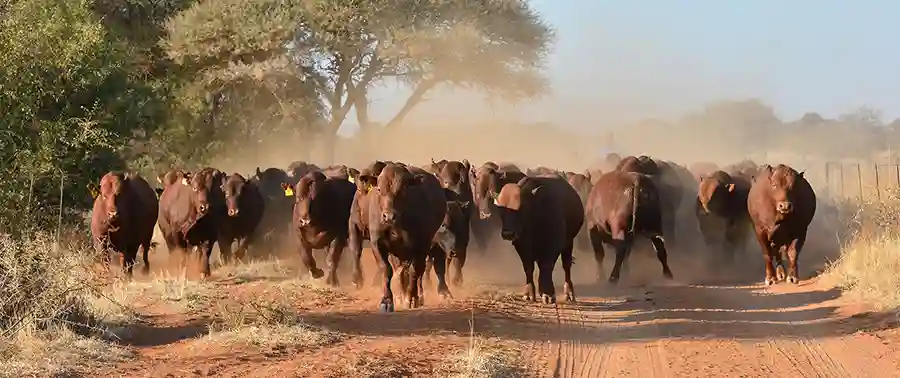National Kraal director and livestock specialist, Mr Christopher Magona has said empowering farmers with adequate knowledge to treat farming as a business and produce quality animals is key to resuscitating Zimbabwe’s livestock sector.
He made the remarks at a Pen Fattening and Animal Health training in Mbokodo Feedlot.
The training focuses on enhancing the profitability of cattle pen fattening, a lucrative business that involves feeding beef cattle with a protein-balanced, high-energy diet to increase live weights and improve the degree of finish.
Magona said that most farmers were underutilizing their land and could run a 1,000-livestock business on three hectares if trained properly. He said with the proper knowledge, Zimbabwe’s livestock sector, particularly the beef industry, could become a major player in the global market and contribute to the country’s economic growth and development. He said:
Cattle pen fattening involves the feeding of beef cattle with a protein-balanced, high-energy diet for a period of 70 to 120 days under confinement to increase live weights and improve degree of finish and thus obtain better grades at the abattoir. It also enables the animals to express fully their genetic potential for growth. Hence, as National Kraal we are moving around the country training farmers to take livestock farming as a business.
We are trying to bridge knowledge gaps around certain aspects that are important for profitability and to cut knowledge barriers on how much land and resources farmers need for their livestock farming business to thrive.
Mr Obert Chinhamo of Biano Simmentals Farm in Esigodini described the Pen Fattening and Animal Health training as an eye-opener for farmers. He emphasized that professional assistance is critical in livestock farming as a business to avoid unnecessary losses and maximize profits. He also mentioned feedlot management as a more economical way to raise a large number of cattle for beef production, as animals housed on feedlots are fed and raised on less land, which cuts costs.
Ms Jabulile Sibanda, an upcoming farmer, stated that the training helped her map out her livestock farming business. She learned that cattle fattening is profitable when done correctly, and profitability depends on factors such as buying price, feed cost, price margin, and feed conversion efficiency ratio.
Zimbabwe was once a significant meat exporter to Europe, especially the UK. However, the country’s meat industry declined due to several factors, including economic challenges, political instability, and land reforms that resulted in inexperienced farmers lacking the necessary resources and knowledge to run commercial farms effectively. This led to a decrease in livestock numbers, a drop in meat production, and a loss of export markets. The industry’s lack of investment further exacerbated the decline, and Zimbabwe has since struggled to regain its position as a major meat exporter.

